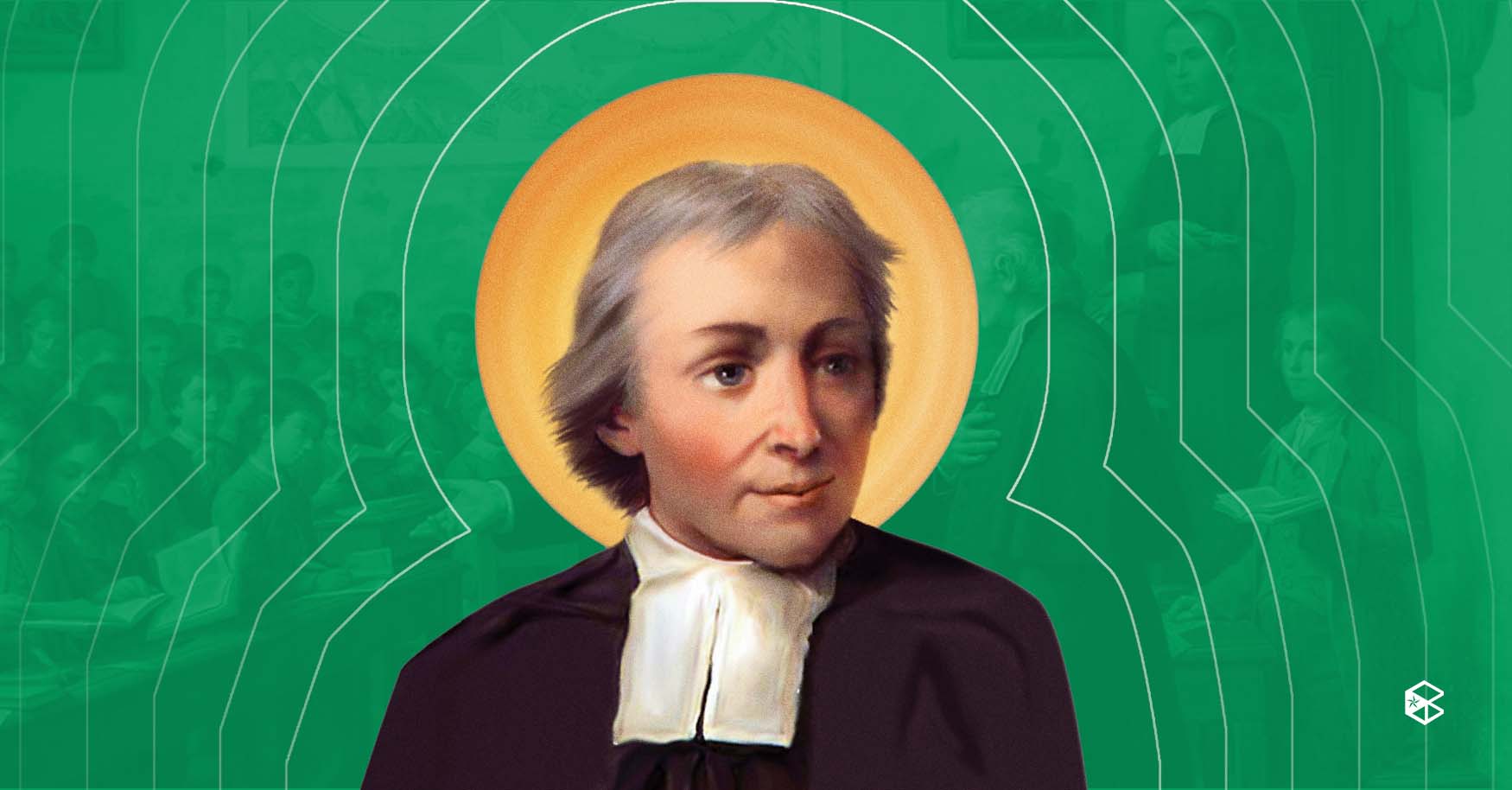Saint John Baptist de La Salle, French educator and founder of the Institute of the Brothers of the Christian Schools (commonly known as the La Salle Brothers), was able to transform education across four centuries all over the world一cementing his legacy as the Patron Saint of Teachers.
Early life and upbringing
Born to a wealthy family in Remise, France on April 30, 1651, St. John Baptist de La Salle was the eldest child of five brothers and two sisters to Louis de La Salle and Nicolle Moet de Brouillet. His mother’s family ran a successful winery business and was a relative of Claude Moët, French vintner and wine merchant and founder of Moët & Chandon.
With his grandmother’s influence, reading him the lives of the Saints, St. La Salle “received the tonsure,” a sign of religious devotion, at the age of 11. He was then named canon of Reims Cathedral when he was 16. Later on, he was sent to the College des Bons Enfants to pursue higher studies.
On Oct. 18, 1670, he was sent to Paris and entered the Seminary of Saint-Sulpice. In the seminary, he became deeply concerned about the less fortunate families who couldn’t afford to send their children to school.
Shortly after, St. La Salle’s mother passed away on July 19, 1671. A year later, his father soon followed on Apr. 9, 1672. At the age of 21, he became the head of the family, with the responsibility to take care of his siblings.
Call to service for education
On Apr. 9, 1678, St. La Salle was ordained to priesthood at 26 years old and received a doctorate in theology two years later. He continued to be concerned with the lack of opportunities in education for the working class and the poor.
In March 1679, French educator Adrian Nyel asked for St. La Salle's help in opening free schools for less fortunate boys in Reims. During his time, schools only existed mostly for the wealthy. St. La Salle was one of the first educators in history who have put students into larger organized groups and be taught simultaneously by one teacher.
St. La Salle believed in the idea that if schools were to exist for the working class and those who did not know Latin, the common language should be in French. With only very few teachers during his time, he placed great importance on schools for teacher training.
He was also one of the pioneering educators in history to have established schools for young criminals convicted in civil courts. St. La Salle prioritized protecting the youth, especially young delinquents. He started schools for the children of the working class, as well as trained teachers to write teacher training and management manuals, textbooks, and prayer books for students, and spiritual books for the Brothers.
St. La Salle initially had no idea for spearheading schools on Christian education for the working class. But soon after, he was drawn to the work, became dedicated to his vocation, and relied on God’s providence for the basic material needs of the schools and the Brothers.
A lasting legacy
On April 7, 1719, a Good Friday, St. La Salle died at Saint Yon, near Rouen, only three weeks before his 68th birthday. “I adore the holy will of God in my regard,” his parting words to the Brothers. This encapsulates his life that was built and celebrated through faith and trusting and believing in God.
Six years after his death in 1725, the society was recognized by Pope Benedict XIII under the official title of “Brothers of the Christian Schools.”
St. La Salle was canonized by the Catholic church on May 24, 1900 and was proclaimed by Pope Pius XII as patron saint of all teachers of the youth on May 15, 1950. He opened his heart in teaching the poor, especially the youth.
Today, the Lasallian schools form a 300-year-old network, including 16 educational institutions in the Philippines, which follow St. La Salle's principles. The Lasallian Family is currently composed of more than 3,000 Brothers and 90,000 educators with 1,100 educational works, in over 80 countries and more than one million pupils.


